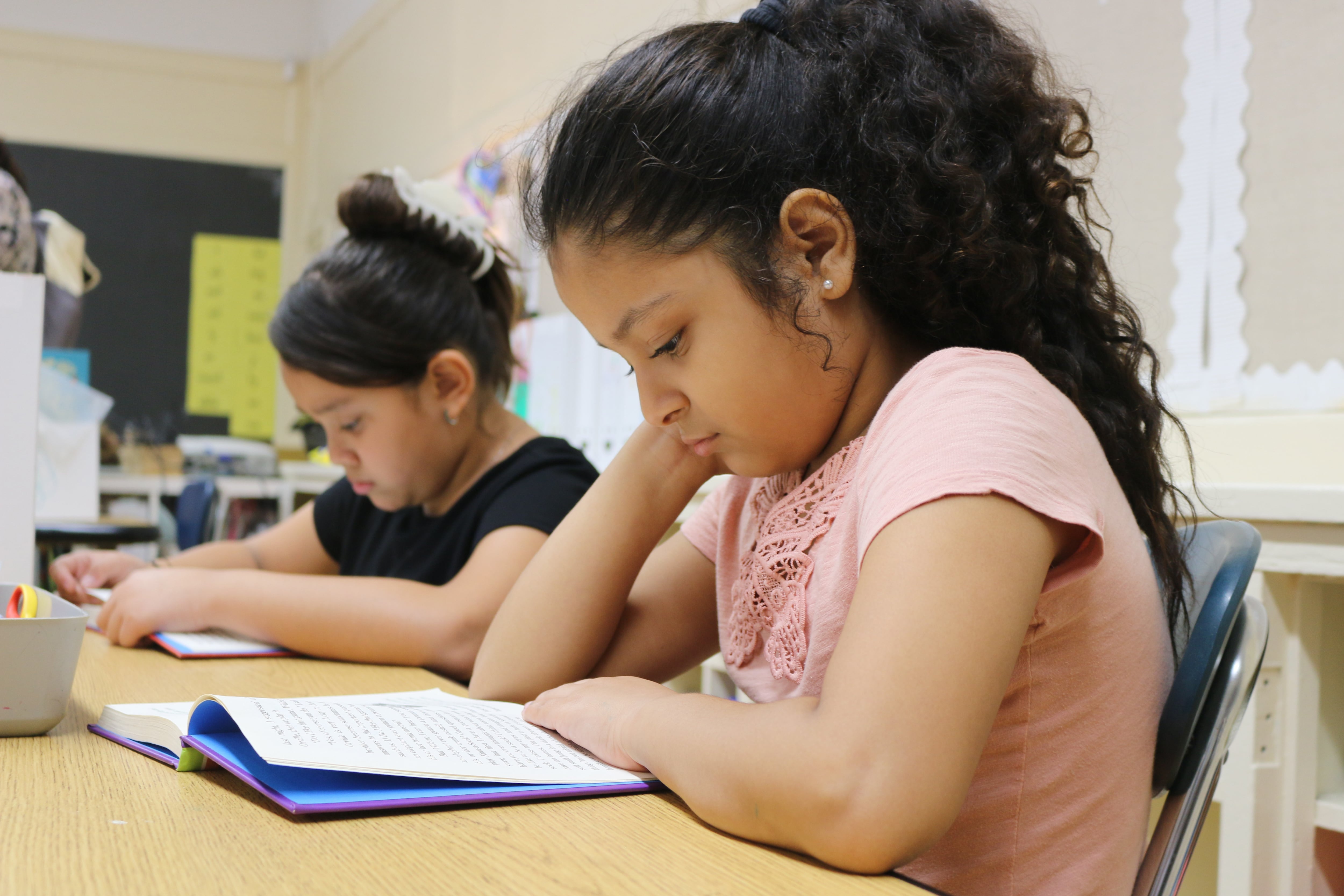Sign up for Chalkbeat New York’s free daily newsletter to keep up with NYC’s public schools.
Mayor Eric Adams’ sweeping effort to improve reading instruction has focused on educators, but a report released Thursday makes the case that caregivers are crucial to boosting reading instruction and the city should do more to include them.
The report focused on parent perceptions of how well their schools are communicating about reading instruction and is based on focus group interviews with 19 New York City mothers conducted by Advocates for Children, a nonprofit group that has pushed the city to adopt stronger approaches to reading instruction.
In many cases, caregivers reported that their schools brushed off concerns about their child’s reading challenges, and they were unsure how to get the help they needed. Some said they heard little from their schools about the city’s new curriculum overhaul.
“The message needs to come from the top that family engagement requires more than just passing along information,” according to the report, which offers a series of recommendations for improving communication between parents and schools. “It means valuing parents’ expertise about their children.”
Parents who participated in the focus groups last summer were not randomly selected and all but one of them has at least one child with a disability. Still, their interviews reveal common roadblocks — and some bright spots.
Here are three takeaways from the report:
Parents struggle to be heard
Several parents said they noticed their child’s reading challenges early on but schools insisted they’d outgrow it. And in cases where a child was already receiving special education services, caregivers said schools seemed reluctant to provide help targeted at specific reading problems or acknowledge the possibility that they might also have dyslexia, a language-based learning disability.
In other cases, parents said educators flagged reading issues, but the school never came up with a solid plan for addressing them. Bronx mom Shy Washington said her son repeatedly did not meet the goals listed on his special education learning plan, falling further behind in reading. But she felt like she never got a clear explanation about the school’s strategy and why it wasn’t working.
“I wanted a roadmap — I wanted some direction,” Washington said in an interview with Chalkbeat. “I looked to them for the answers, and I ended up having to search for my own because they had none for me.”
Caregivers crave more information about instruction and how they can help at home
Parents said they often felt in the dark about how their child’s school approaches reading instruction, including the city’s sweeping curriculum overhaul.
“Most had heard little to nothing about NYC Reads [the city’s new reading curriculum mandate] or about the literacy curriculum being used at their children’s schools,” the report notes. “More than one wished there were more opportunities to discuss their child’s performance and individual needs in depth.”
Some parents said they wanted more guidance about how they could help at home, beyond standard advice to read to their child for 15-20 minutes each night.
Education Department spokesperson Nicole Brownstein emphasized that the city is working with schools to inform parents about the curriculum changes, including how parents could support their child’s reading. She added that the focus group interviews were conducted before schools were required to change their instructional approaches, and the city is now prioritizing outreach to families.
“As always, family engagement and involvement is critical to fostering a strong and supportive school community,” Brownstein said in a statement.
Some parents welcomed regular communication about classroom instruction. One mom received emails throughout the week from her child’s kindergarten teacher about what they’re working on and provided optional worksheets to work on if a student needed to catch up from an absence.
“I felt so empowered by that, because I felt like I had some direction, some guidance,” the parent said in a focus group interview.
The process for getting extra help is murky
Parents often feel unsure what to do next if their child is struggling with reading and isn’t getting the help they need.
“The difficulty of navigating the public school system and getting answers to their questions came up in nearly every one of our conversations,” according to the Advocates for Children report.
Washington, the mother of an eighth grader who is behind in reading, said she struggled to navigate the city’s notoriously complex special education system, requesting multiple evaluations when her son was in elementary school. After years of feeling like her son’s services weren’t making a big dent, she ultimately sought outside evaluations with assistance from The Legal Aid Society to create more pressure for the city to offer extra help. She also looked for tutoring support outside of her son’s school.
Her main advice to parents: Be prepared to chart your own path.
This story has been updated with a response from the Education Department.
Alex Zimmerman is a reporter for Chalkbeat New York, covering NYC public schools. Contact Alex at azimmerman@chalkbeat.org.








